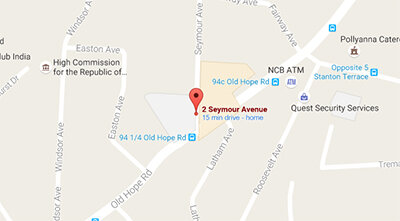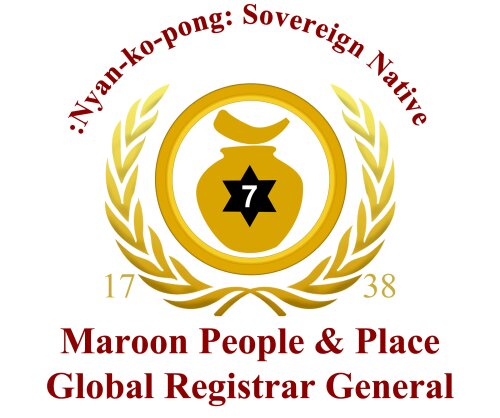Best General Litigation Lawyers in Jamaica
Share your needs with us, get contacted by law firms.
Free. Takes 2 min.
Or refine your search by selecting a city:
List of the best lawyers in Jamaica
About Litigation Law in Jamaica
Litigation in Jamaica involves the process of taking legal action to resolve disputes and enforce or defend rights through the judicial system. The Jamaican legal system, a common law jurisdiction, is influenced by British law and includes several levels of courts, from the Resident Magistrates' Courts to the Supreme Court and the Court of Appeal. Litigation covers a wide range of disputes, including civil, commercial, and criminal cases. Legal proceedings can be complex and often require the expertise of a lawyer to navigate effectively.
Why You May Need a Lawyer
There are a number of situations where individuals or businesses may require legal assistance in litigation. These include:
- Contract disputes involving breaches or disagreements over the terms of an agreement.
- Personal injury claims resulting from accidents or negligence.
- Property disputes, such as boundary disagreements or land ownership issues.
- Employment disputes, including wrongful termination or discrimination claims.
- Family law conflicts, such as divorce or custody battles.
- Defamation cases where reputation needs to be protected or defended.
- Collection of debts or defense against wrongful debt claims.
- Any criminal charges where one's rights need to be defended effectively.
Local Laws Overview
Litigation in Jamaica is governed by a combination of statutes and common law. Key aspects include the following:
- The Judicature (Resident Magistrates) Act: Establishes the Resident Magistrates' Courts, handling civil cases with claims under a certain financial threshold.
- The Judicature (Supreme Court) Act: Governs the Supreme Court, which handles higher-value civil lawsuits and serious criminal cases.
- The Civil Procedure Rules (CPR): Outline the process for civil litigation, ensuring fair conduct and management of civil cases.
- Limitation of Actions Act: Sets time limits on how long parties have to bring legal actions, different for each type of claim.
- Case Law Precedent: Cases decided by higher courts establish precedents that influence future decisions.
Frequently Asked Questions
What is litigation?
Litigation is the process of taking legal action or resolving disputes through the court system. It includes preparing and presenting a case before a judge or jury.
How long does a litigation process typically take in Jamaica?
The duration of litigation can vary significantly based on the complexity of the case, the court's schedule, and whether the matter is contested or uncontested. Simple cases may conclude in months, whereas complex ones can take years.
Can I represent myself in a court case?
Yes, individuals are allowed to represent themselves, known as acting "pro se." However, due to the complexity of legal proceedings, it is recommended to seek legal representation.
What are the costs associated with hiring a litigation lawyer in Jamaica?
Legal fees vary depending on the lawyer's experience, the complexity of the case, and its duration. Some may offer fixed fees for straightforward cases, while others might charge hourly rates. Always discuss costs upfront.
What should I do if I receive a court summons?
It's essential to read the summons carefully, comply with the instructions, and seek legal advice immediately to understand your options and prepare a defense.
What is the role of mediation in the litigation process?
Mediation is a form of alternative dispute resolution (ADR) that aims to resolve disputes outside of court through a neutral mediator. It is often quicker and less costly than proceeding with full litigation.
Can I appeal a court decision in Jamaica?
Yes, most decisions can be appealed to a higher court. However, there are strict procedures and time limits for filing an appeal, so legal advice is crucial.
What is 'discovery' in litigation?
Discovery is the pre-trial phase where parties exchange information relevant to the case, including documents and witness depositions, to prepare for trial.
How do I enforce a court judgment in Jamaica?
If a judgment is granted in your favor, enforcement methods like garnishment of wages or seizing assets may be used to collect the owed amounts.
Can a case be settled out of court in Jamaica?
Yes, many disputes are settled out of court through negotiations between parties, often leading to faster and more satisfactory outcomes for both sides.
Additional Resources
For those seeking further information on litigation, the following resources may be beneficial:
- Jamaican Bar Association: Offers a directory of qualified attorneys specializing in various fields, including litigation.
- The Ministry of Justice Jamaica: Provides information on legal aid services and the justice system infrastructure.
- Dispute Resolution Foundation: Specializes in mediation services and promotes alternative dispute resolution in Jamaica.
- Legal Aid Council: Offers legal assistance to individuals who cannot afford private legal services.
Next Steps
If you need legal assistance in litigation, consider the following steps:
- Assess your situation: Determine if your issue could benefit from legal advice or representation.
- Find a qualified lawyer: Utilize resources like the Jamaican Bar Association or recommendations to locate a reputable attorney.
- Consultation: Arrange an initial consultation to discuss your case and understand your legal options and costs involved.
- Prepare your documentation: Gather all relevant documents and information to assist your lawyer in understanding and handling your case effectively.
- Follow legal advice: Adhere to your lawyer's guidance and participate actively in your case to ensure the best possible outcome.
Lawzana helps you find the best lawyers and law firms in Jamaica through a curated and pre-screened list of qualified legal professionals. Our platform offers rankings and detailed profiles of attorneys and law firms, allowing you to compare based on practice areas, including General Litigation, experience, and client feedback.
Each profile includes a description of the firm's areas of practice, client reviews, team members and partners, year of establishment, spoken languages, office locations, contact information, social media presence, and any published articles or resources. Most firms on our platform speak English and are experienced in both local and international legal matters.
Get a quote from top-rated law firms in Jamaica — quickly, securely, and without unnecessary hassle.
Disclaimer:
The information provided on this page is for general informational purposes only and does not constitute legal advice. While we strive to ensure the accuracy and relevance of the content, legal information may change over time, and interpretations of the law can vary. You should always consult with a qualified legal professional for advice specific to your situation.
We disclaim all liability for actions taken or not taken based on the content of this page. If you believe any information is incorrect or outdated, please contact us, and we will review and update it where appropriate.
Browse general litigation law firms by city in Jamaica
Refine your search by selecting a city.












